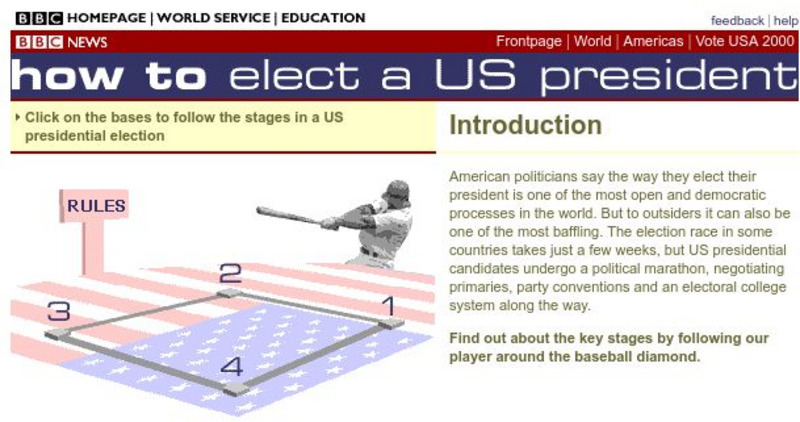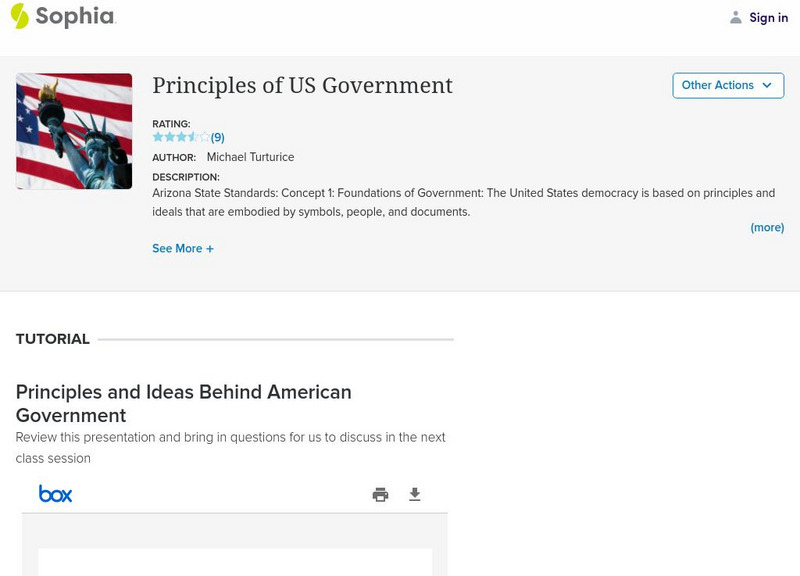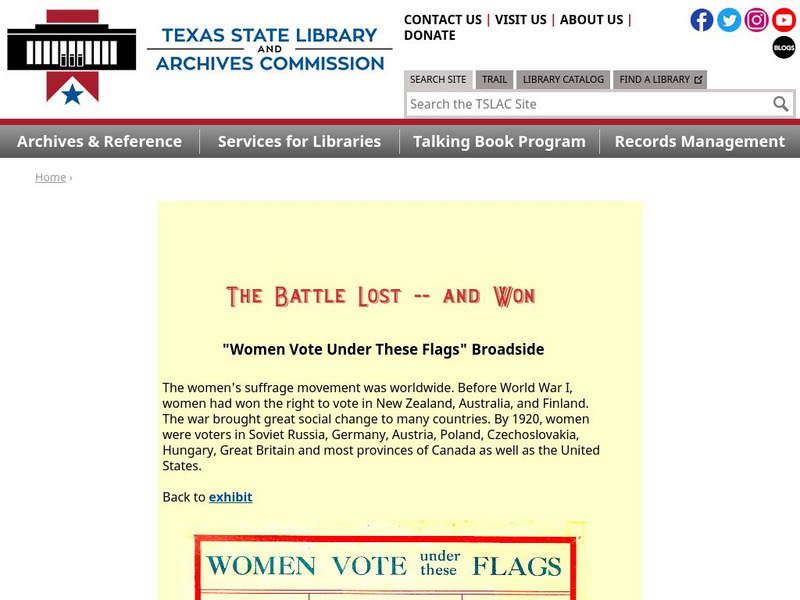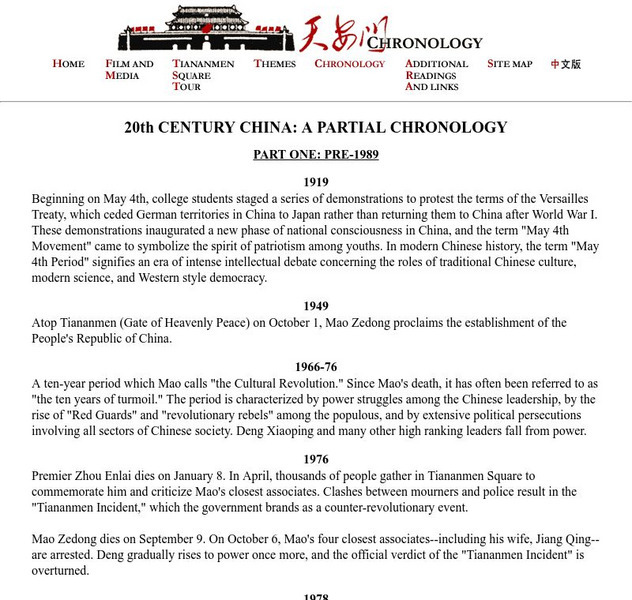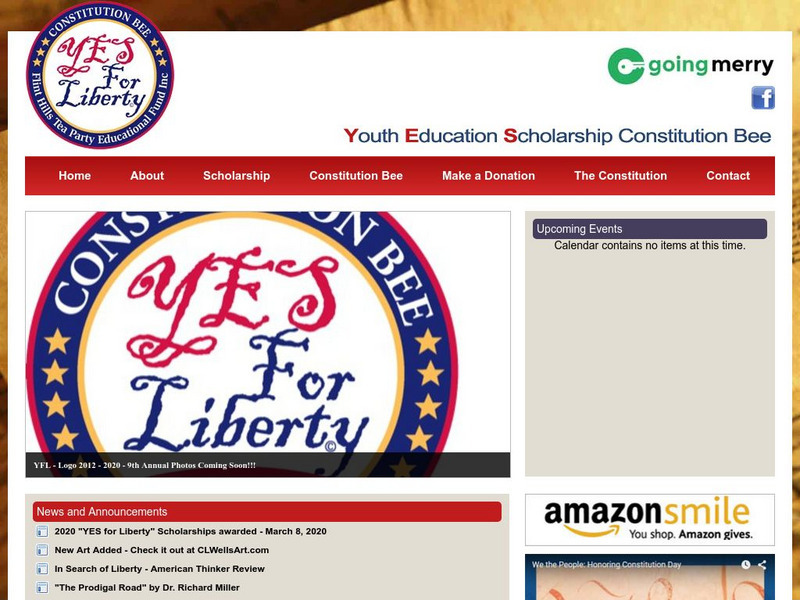Ohio Test Prep
Ohio Test Prep: Bill of Rights
Ohio test preparation material on the Bill of Rights provides three video tutorials that hit specifically learning target 9 which is to cite evidence for historical precedents to the rights incorporated in the Bill of Rights.
The Newberry Library
Newberry Library: Library Exhibit: Outspoken: Chicago's Free Speech Tradition
A virtual library exhibit about free speech, focusing on the principles that unite Americans and the conflicts that divide them.
iCivics
I Civics: Foundation Basics
In this lesson, students are introduced to the concepts of authority, legitimacy, and sovereignty and consider how governments establish and maintain these foundational characteristics.
iCivics
I Civics: Peaceful Transfer of Power (Infographic)
For over two centuries, American political offices have peacefully transferred power after every election. This infographic shows how precedent, tradition, and legitimacy have helped create this democratic norm.
BBC
Bbc News: How to Elect a Us President
Electing a US President can be a political marathon. The British Broadcasting Company helps make this process easier to understand by explaining it in key stages.
Other
Liberty Online: Locke's Second Treatise on Government: Of Conquest
At this site you can read Chapter XVI, Of Conquest, by John Locke stating that the basis of any government must be the consent of the people, and implying in the writing that war or revolution is often mistaken as consent. (Published in...
Smithsonian Institution
National Postal Museum: Binding the Nation
A multi-part online exhibit that traces the development of the U.S. Postal System. Artifacts may be clicked on and text explains their significance. Historic, primary materials are used throughout the exhibit.
Sophia Learning
Sophia: Principles of u.s. Government
Tutorial presents an introduction to the principles of the United States democratic government highlighting the differences and similarities between Roman and U.S. governments.
PBS
Pbs Teachers: The Jackson Inauguration (Lesson Plan)
A lesson plan in which students examine the inauguration of Andrew Jackson in 1828. They discuss how his election signaled changes in the American political landscape and embodied the culture of his era. They also compare the politics of...
Texas State Library and Archives Commission
Texas State Library and Archives Commission: The Battle Lost and Won: "Women Vote Under These Flags" Broadside
Interesting broadside showing flags of countries that allowed women to vote, and asking under the U.S. flag, "Why do not all women vote under the flag of democracy?"
Other
Center for Asian American Media: Chronology of the Pro Democracy Movement
A detailed timeline starts with events in the early part of the 20th century and then covers the year 1989 during which the massive protests in Tiananmen Square took place.
Alabama Learning Exchange
Alex: Why Vote?
Students will complete a web quest that includes reading material on the expansion of voting rights, viewing video on historical events related to suffrage, and completing a multimedia project (public service announcement). An extension...
Alabama Learning Exchange
Alex: The United States Supreme Court: Published Opinions
Students will read and analyze published opinions of the United States Supreme Court to determine the type of opinions issued by the court. Students will select a justice and attempt to determine that justice's ideology as they read the...
Stephen Byrne
History for Kids: United States Constitution
History for Kids provides an overview geared toward elementary age students of the history of the United States Constitution. Includes links to resources for teachers.
Colonial Williamsburg Foundation
I Citizen Forum: Living Documents: Virginia Statute for Religious Freedom
Complete text, in multiple languge formats, of the Virginia Statute for Religious Freedom.
Stephen Byrne
History for Kids: Declaration of Independence
Overview of the history and foundation of the Declaration of Independence. Website is designed for elementary students and includes activities, worksheets and quizzes for teachers.
Other
The Great Books Foundation: The Natural Aristocracy
A letter to John Adams from Thomas Jefferson dated October 28, 1813 that provides a mini-summary of Jefferson's philosophy toward democracy and the ability of Americans to govern themselves.
OpenStax
Open Stax: A New Political Style: From John Quincy Adams to Andrew Jackson
By reading this section of a chapter on "Jacksonian Democracy," students will be able to explain and illustrate the new style of American politics in the 1820s, describe the policies of John Quincy Adams's presidency and explain the...
Other
Yes for Liberty: Youth Educational Scholarship Constitution Bee
This organization seeks to educate youth about the Constitution and its founding principles. Each year they hold a Constitution Bee. Study materials and a quiz for learning about the Constitution are provided on the site, as well as the...
PBS
Pbs Online News Hour: Green Party History
PBS Online provides this profile of the Green Party in the United States and other nations.
Smithsonian Institution
National Portrait Gallery: Black List Project: Angela Davis
Professor Angela Davis is featured in a brief biography for her outspoken political and social views.
CommonLit
Common Lit: Close Calls in u.s. Election History (2016)
Democracy and power to the people are celebrated as key American values, but sometimes democracy is more complicated than one might think. This informational text investigates some close calls in U.S. elections and what caused their...
National Humanities Center
National Humanities Center: Toolbox Library: Triumph of Nationalism: Culture of the Common Man
A collection of twelve primary resources, primarily from American literature, that addresses questions about how the United States could function as a democracy, and differences between the concepts of the North and the South concerning...
PBS
Pbs News Hour Extra: Egypt's Uprising Has Characteristics of Past Revolutions
Egypt's bid for democracy is being compared to past revolutions such as the Iranian Revolution, the French Revolution, and even the American Revolution. A brief description of each revolution is provided. February, 2011
Other popular searches
- Roots of American Democracy
- Basis of American Democracy
- Origins American Democracy
- Early American Democracy
- Native American Democracy
- Analyze American Democracy





